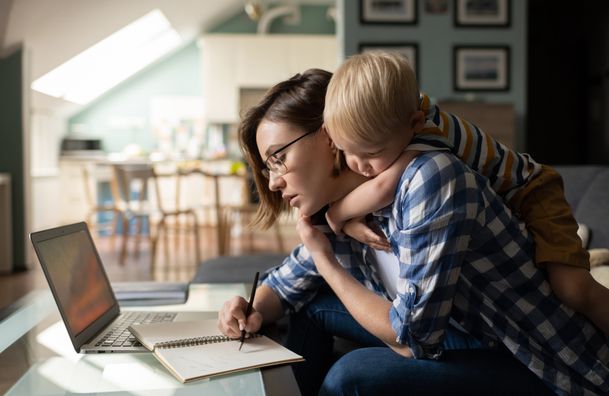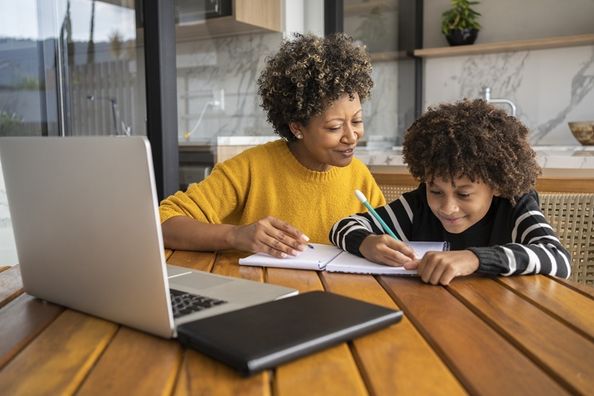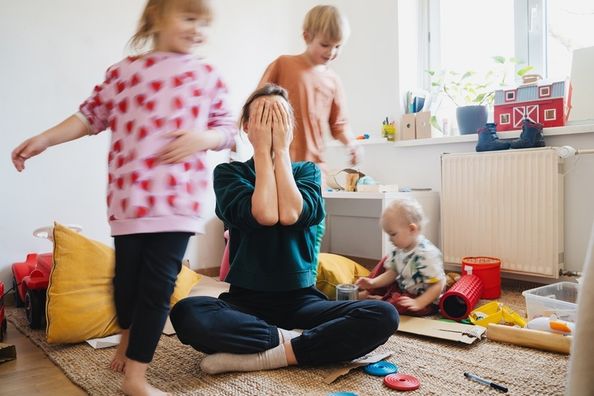The pressure of being a parent can be relentless, and a new study from the University of Michigan School of Social Work shows that the coronavirus outbreak is increasing parents’ stress levels. While schools are out and people are home, parents are spending more time with their children. They are showing more affection, participating in educational activities and playing games together. Ninety-one percent of the parents in the survey said they felt very close to their children.
But with all of this change also came stress, as 52 percent of parents said that financial concerns and social isolation were getting in the way of their parenting. Parents also reported yelling at their kids more often than usual, and they were trying to adjust to suddenly being responsible for schooling their children from home.
The COVID-19 outbreak is scary, and it’s not going away quickly. So how can we take the pressure off of parents so they can get back to parenting well?
- Simplify. So many parents are trying to step into the gap and make sure their kids experience everything they would at any other time. But does that make sense? For most of us, that takes a team of people: teachers, daycare providers, coaches, music tutors and so on. Instead, try what doctors do when there is too much going on and triage. What is really important right now and what can wait? It can be hard to let things go, but spreading yourself too thin can lead to nothing going well and extra anxiety. Instead, invest your energy where you think your child really needs it right now and let the rest slide.
- Take care of yourself. According to the American Academy of Pediatrics’ (AAP) “10 Tips to Help Keep the Calm at Home” during COVID-19, attending to your own needs is a priority. Try to exercise and get enough sleep. But most importantly, take time to decompress or alternate who is watching the kids if there is another parent at home.
- Keep the kids busy. This is easier said than done, but loneliness and boredom are big reasons that kids act up. Most parents don’t want to rely exclusively on screen time for this, so try setting up virtual playdates, art projects or “life-skills” lessons. My kids are surprisingly engaged in learning how to clean the bathroom and sweep the floor. The AAP has a great tip sheet for keeping your kids productive at home.
- Take time to talk about fears. While most parents are working hard to shelter kids from the worst of the news about the coronavirus outbreak, kids are still hearing about it. Sometimes they overhear bits of adult conversation, or get misinformation from their friends. Kids who are old enough for social media may be getting frightening and incorrect information. Some families may have already faced the death of a loved one from COVID-19. Fears should be brought into the open, and grief passes best when we talk about it with those we love. For more tips about talking with kids about coronavirus, read here.
As we spend more time at home with our children, it’s important to notice how we feel in our bodies as well as how our children are feeling. If you have concerns about how you or your child are doing, physically or mentally, your primary care provider is a great first resource in ensuring good mental and physical health.
Additional Resources:
Coronavirus (COVID-19) is a rapidly evolving global health situation. For the latest information, visit:
- Centers for Disease Control and Prevention https://www.cdc.gov/coronavirus/about/index.html
- Illinois Department of Public Health http://www.dph.illinois.gov/topics-services/diseases-and-conditions/diseases-a-z-list/coronavirus
Health Topics:







